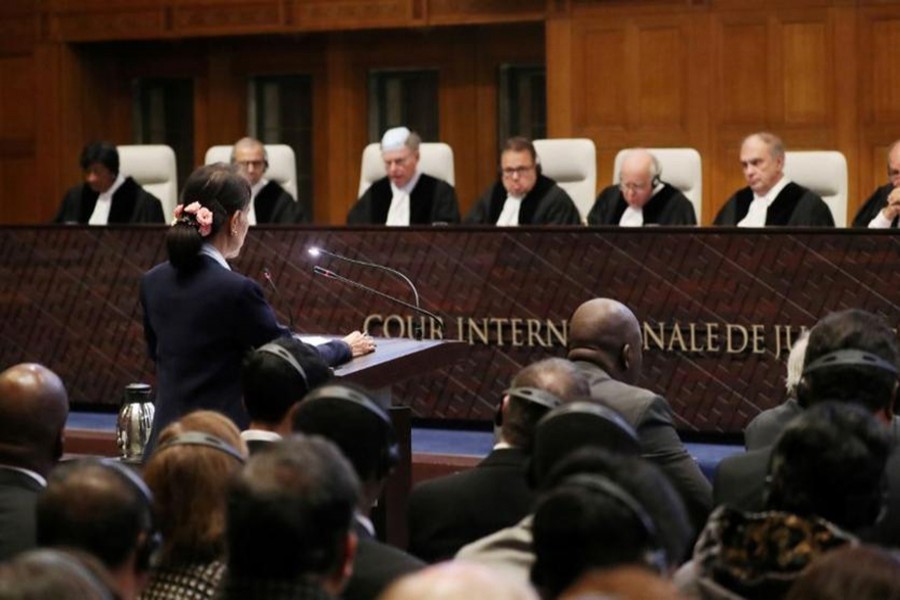The unanimous ruling of the International Court of Justice (ICJ), on Thursday, being a historic one would surely raise some hope among persecuted Rohingyas. The ruling has imposed a legal responsibility on the Myanmar government in the matters of brutal acts unleashed by its army against the Rohingyas in 2017. More importantly, the top court of the United Nations took recourse to the 1948 Genocide Convention while asking Myanmar to take four interim measures to prevent acts of genocide against the Rohingya minority population and stop destroying the evidence of alleged genocide. The ICJ also expressed its dissatisfaction over Myanmar's efforts to facilitate the return of Rohingya refugees from Bangladesh and to promote ethnic reconciliation, peace and stability in Rakhine state.
The ICJ ruling is being considered a victory for those who have been relentlessly trying to protect the rights of the Rohingya and save them from persecution by the members of the Myanmar army and other terror elements. The Gambia that acted on behalf of the Organisation of Islamic Conference (OIC) in particular does deserve deep appreciation for taking up the issue with the ICJ. The ruling that was issued last week is expected to create some pressure on Myanmar. That country now might feel obliged to offer protection to the Rohingya population. But the ruling does not include anything concrete about the top most concern of Bangladesh -- repatriation of nearly 0.75 million Rohingya who took refuge in Bangladesh in 2017 to escape atrocities of the extreme kind.
There exists diverging views over the handling of the Rohingya issue by Bangladesh from the very beginning. But the hard truth is that it is having a tough time in providing food and shelter to such a huge number of refugees despite international supports. The influx of the Rohingya population has also given rise to many social and environmental problems of very serious nature. What Bangladesh does need desperately is the early repatriation of the Rohingya refugees. It, however, has been equally concerned about the safety and security these people who had faced the worst in their own country.
Bangladesh has made a number of futile attempts to persuade Myanmar to take back the Rohingya refugees. The latter is not sincere on the issue as it, on a number of occasions, had reneged on its promise made at the bilateral meetings. Myanmar's rogue administration has been under constant international pressure on Rohingya issue. But, because of tacit yet unfair backing by a few powerful countries, such pressure yielded no positive outcome. The fact remains that Bangladesh has very good relations with all these countries. Yet they were guided more by their political and economic interests in Myanmar than anything else.
This time, however, there could be some change in their attitude following the ICJ ruling which has far greater implications. The Rohingya issue is no more an issue only discussed in international and bilateral forums. With the Thursday's ruling, the issue has got the much-needed legal backing of the highest international court. The problem would again come under scrutiny within four months when Myanmar notifies the ICJ about the measures taken in compliance with its January 23 ruling. Bangladesh will have to play its own cards efficiently with the sole objective of sending the Rohingyas back home in a safe and secure environment. With this end in view, Dhaka needs to mount its diplomatic offensive in a situation that is considered more favourable than before.


